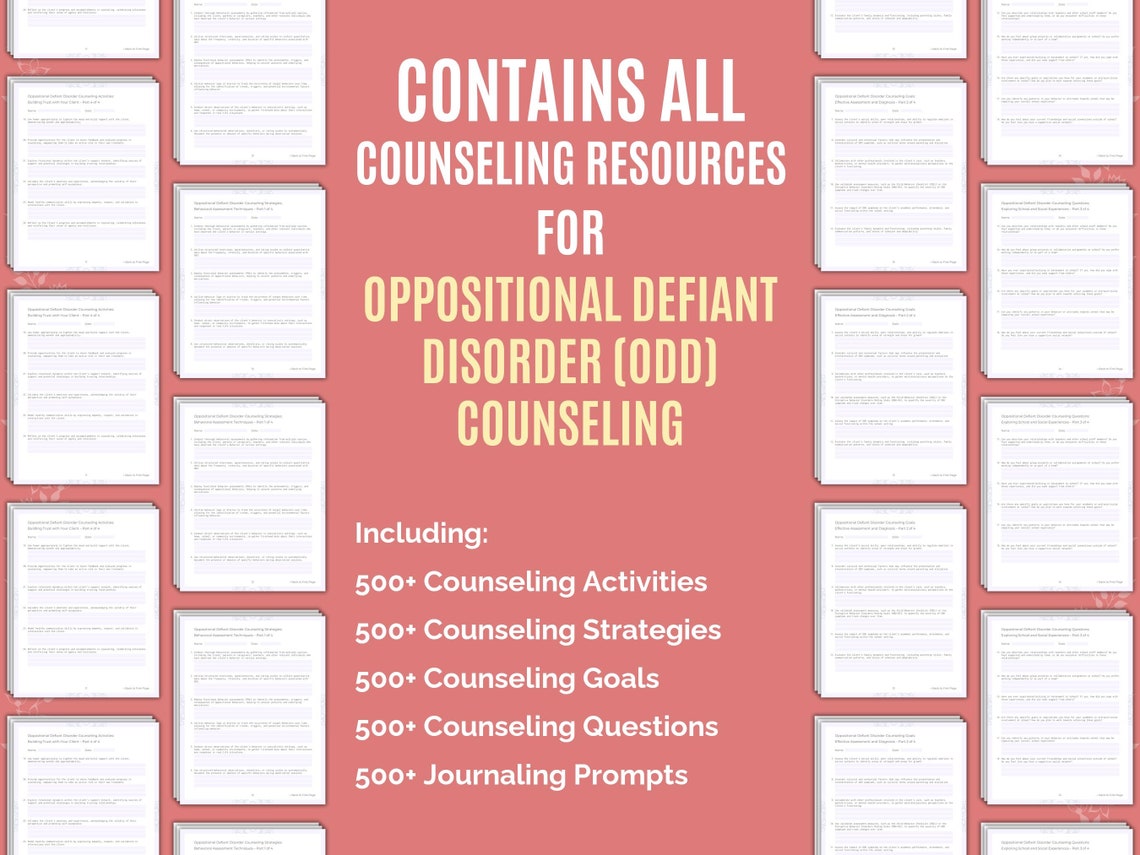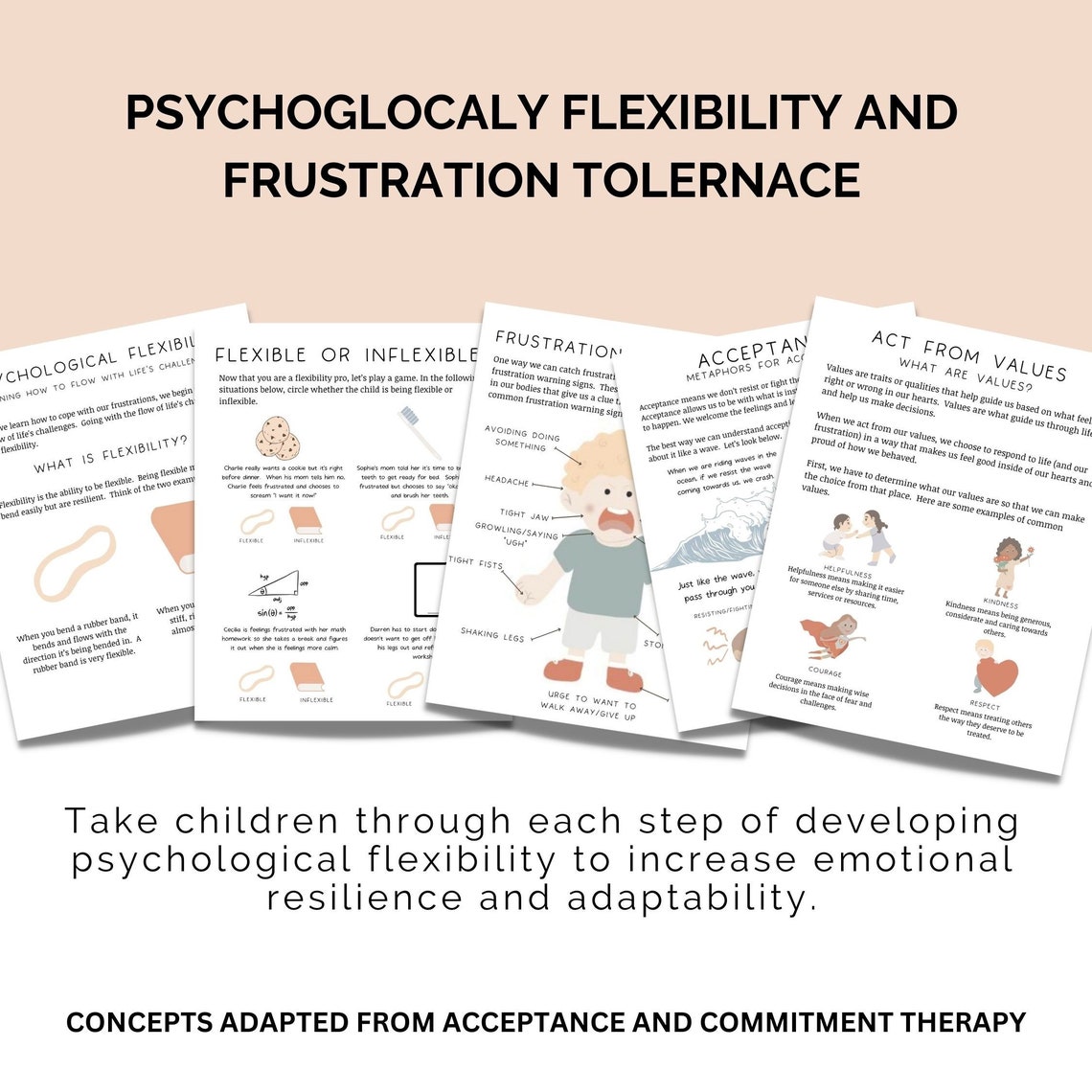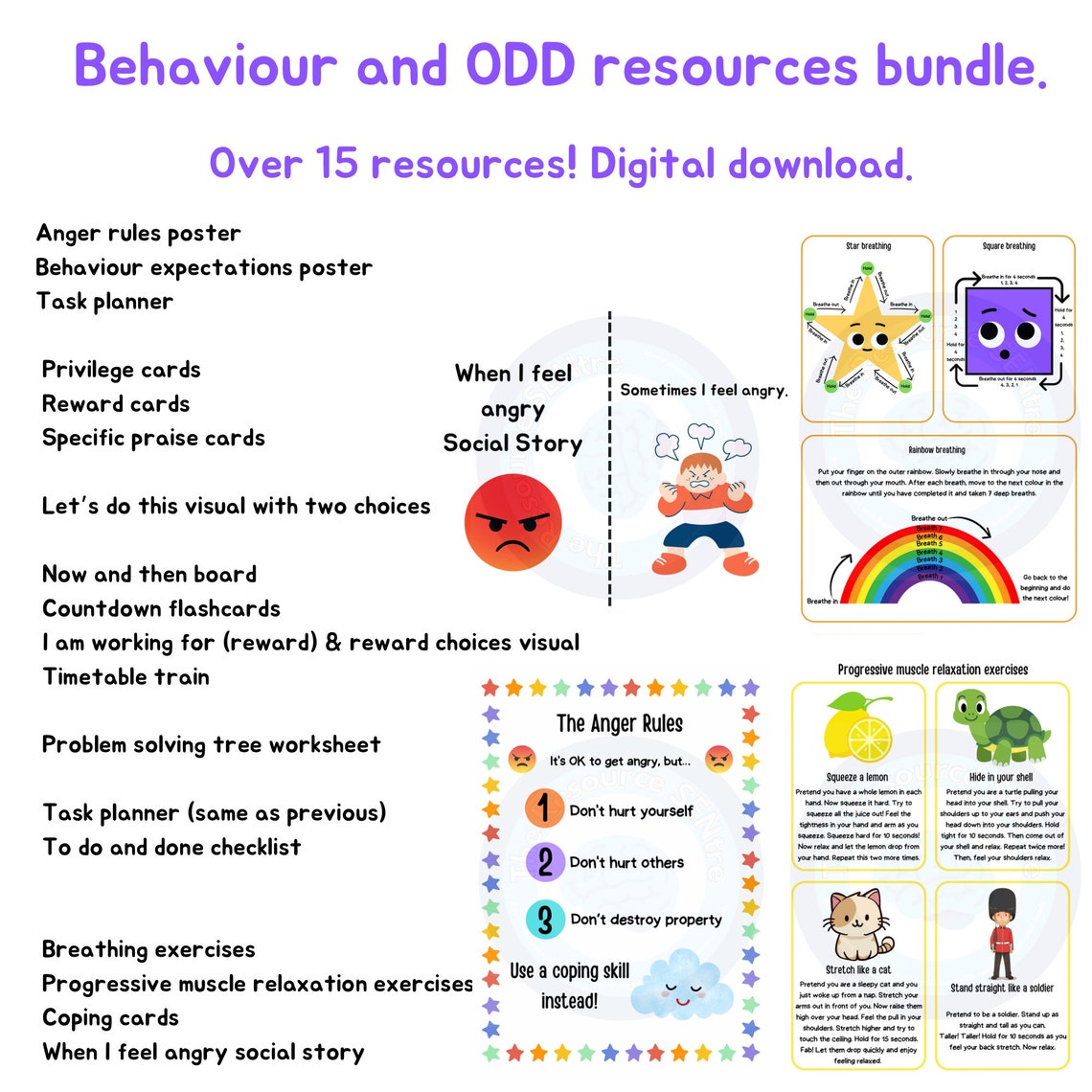- Effective & Fun Activities for Kids with Oppositional Defiant Disorder
Oppositional Defiant Disorder (ODD) is a behavioral condition characterized by a pattern of angry, defiant, and vindictive behavior toward authority figures. While managing ODD can be challenging, especially for parents and caregivers, it’s important to remember that children and teens with ODD can thrive with the right support, understanding, and activities that channel their energy positively.
When working with students at my school I came across a lot of students with this type of disorder but realized that working with these types of children became my favorite which is why I enjoyed working in the school district in the behavioral-emotional self-contained classroom.
There it was hard for me to find cool activities and even toys for children who struggled with ODD. So in this comprehensive guide whether you’re a parent, teacher, or community leader I’m going to give you some tips, tricks, techniques, and strategies of what work for me when planning activities for children with Oppositional Defiant Disorder.
What is Oppositional Defiant Disorder?
So if you’re new to this world of just have a child that has recently been diagnosed with ODD you’re probably wondering what ODD is because there isn’t really a lot of information on this disorder online or not heavily talk about online or in the school district. ODD consist of many different components.
You may have a child who has frequent temper tantrums, eloping, arguing, refusing to comply with request, easily upset, disruptive, and the tendency to blame others for their own behaviors. These types of behaviors are highly disruptive, but with the right strategies and activities, children and teens with ODD can learn to manage their emotions and behaviors more effectively.
The Importance of Structured Activities
As I stated earlier it was very hard for me to find content mainly strategies on how to help my students with ODD. I found out that they needed a routine schedule, trust, and engaging activities that has a huge focus on responsibility, coping skills, and problem solving skills such as the following below.
- Problem-solving: Learning to navigate challenges and find solutions.
- Social skills: Interacting positively with peers and authority figures.
- Emotional regulation: Managing anger and frustration in healthy ways.
- Self-esteem: Building confidence through achievement and recognition.
Here are several fun and productive activities that can help children and teens with ODD. Each activity includes clear instructions to ensure that they can be implemented effectively.
1. Get Artsy and Craft Activities
a. Calm Down Jars
Materials Needed:
- Clear plastic or glass jar with a lid
- Warm water
- Glitter glue
- Extra glitter
- Food coloring (optional)
- Super glue (optional)
Instructions:
- Fill the jar with warm water.
- Add a generous amount of glitter glue to the water. Stir until the glue is fully dissolved.
- Add extra glitter for more sparkle.
- Optionally, add a few drops of food coloring to enhance the visual effect.
- Secure the lid tightly. For added security, you can use super glue to seal the lid.
- When the child feels upset or angry, shake the jar and watch the glitter swirl and settle. This can have a calming effect and help them manage their emotions.
b. Emotion Masks
Materials Needed:
- Paper plates
- Markers, crayons, or paint
- Popsicle sticks
- Glue
- Scissors
Instructions:
- Give each child a paper plate.
- Ask them to draw different facial expressions on the plates (happy, sad, angry, surprised, etc.).
- Color or paint the faces.
- Cut out holes for the eyes.
- Glue a popsicle stick to the bottom of each plate to create a handle.
- Use these masks to discuss and role-play different emotions, helping children to recognize and express their feelings.
2. Physical Activities
a. Obstacle Course
Materials Needed:
- Household items like pillows, chairs, hula hoops, cones, etc.
Instructions:
- Set up an obstacle course in your backyard or living room using the items you have.
- Design a course that includes jumping over pillows, crawling under chairs, running around cones, and hopping through hula hoops.
- Explain the course to the children and demonstrate how to navigate it.
- Time the children as they complete the course, encouraging them to beat their own times rather than compete with others.
- This activity helps in channeling their energy, improving coordination, and fostering a sense of achievement.
b. Yoga and Mindfulness
Materials Needed:
- Yoga mat or soft surface
- Calm, quiet space
- Yoga instruction video or guide
Instructions:
- Set up a calm, quiet space with yoga mats.
- Choose a yoga video or guide that is suitable for children and teens.
- Guide them through basic yoga poses such as the tree pose, child’s pose, and downward dog.
- Incorporate mindfulness exercises like deep breathing and guided imagery.
- Yoga and mindfulness can help in reducing stress, improving focus, and promoting emotional regulation.
3. Social Skills Activities
a. Role-Playing Games
Materials Needed:
- Scenario cards with different social situations
- Props (optional)
Instructions:
- Create or print out cards with various social scenarios (e.g., making a new friend, dealing with a disagreement, asking for help).
- Divide the children into pairs or small groups.
- Give each group a scenario card and ask them to act out the situation.
- Encourage them to discuss how they felt and what they could do differently.
- Role-playing helps in developing empathy, communication skills, and problem-solving abilities.
b. Cooperative Games
Materials Needed:
- Board games or team-based games (e.g., Pictionary, Charades, Team Building Puzzles)
Instructions:
- Choose games that require teamwork and cooperation.
- Explain the rules and emphasize the importance of working together to achieve a common goal.
- Play the games, providing guidance and support as needed.
- After the game, discuss what worked well and what could be improved in terms of cooperation and communication.
- Cooperative games help in building trust, teamwork, and positive social interactions.
4. Cognitive and Academic Activities
a. Problem-Solving Challenges
Materials Needed:
- Puzzles (jigsaw puzzles, logic puzzles, riddles)
- Brain teasers
Instructions:
- Provide a variety of puzzles and brain teasers appropriate for the child’s age and skill level.
- Encourage them to work through the challenges, offering hints and support when needed.
- Celebrate their successes and discuss strategies for tackling difficult problems.
- Problem-solving challenges enhance critical thinking, perseverance, and cognitive skills.
b. Reading and Storytelling
Materials Needed:
- Age-appropriate books
- Quiet, comfortable reading space
Instructions:
- Create a cozy reading nook with comfortable seating and good lighting.
- Provide a selection of books that cater to the child’s interests.
- Set aside regular reading time each day.
- Encourage the child to read aloud or narrate the stories in their own words.
- Discuss the stories, characters, and lessons learned.
- Reading and storytelling promote literacy, imagination, and emotional expression.
5. Practical Life Skills
a. Cooking and Baking
Materials Needed:
- Ingredients for simple recipes
- Kitchen utensils and equipment
Instructions:
- Choose easy-to-follow recipes that the child or teen can help with.
- Involve them in every step of the process, from measuring ingredients to stirring and decorating.
- Teach kitchen safety and hygiene.
- Enjoy the finished product together, celebrating their efforts.
- Cooking and baking help in developing responsibility, following instructions, and building self-confidence.
b. Gardening
Materials Needed:
- Seeds or young plants
- Soil
- Gardening tools
- Pots or garden space
Instructions:
- Choose easy-to-grow plants or flowers.
- Show the child how to plant the seeds or young plants.
- Teach them how to water and care for the plants.
- Involve them in maintaining the garden, such as weeding and pruning.
- Celebrate the growth and blooming of the plants.
- Gardening fosters a sense of responsibility, patience, and connection to nature.
6. Emotional and Mental Health Activities
a. Journaling
Materials Needed:
- Notebook or journal
- Pens or pencils
- Stickers and decorative items (optional)
Instructions:
- Provide a notebook or journal for the child.
- Encourage them to write or draw about their thoughts, feelings, and experiences.
- Offer prompts if they need help getting started (e.g., “What made you happy today?” or “Draw how you feel when you’re angry“).
- Respect their privacy, allowing them to share their journal only if they wish.
- Journaling helps in processing emotions, reflecting on experiences, and developing self-awareness.
b. Gratitude Exercises
Materials Needed:
- Paper or gratitude journal
- Pens or pencils
Instructions:
- Set aside a few minutes each day to practice gratitude.
- Ask the child to write down or share three things they are grateful for.
- Discuss why these things are important to them and how they make them feel.
- Encourage them to express gratitude to others in their life.
- Gratitude exercises promote a positive outlook, reduce stress, and enhance emotional well-being.
7. Technology-Based Activities
a. Educational Apps and Games
Materials Needed:
- Tablet or smartphone
- Internet access
Instructions:
- Choose educational apps and games that are age-appropriate and align with the child’s interests and needs.
- Set time limits to ensure a healthy balance between screen time and other activities.
- Play the games together, discussing what they learn and enjoy.
- Use the apps as a reward for positive behavior and effort.
- Educational apps and games can make learning fun and interactive, while also improving cognitive and academic skills.
b. Virtual Tours and Experiences
Materials Needed:
- Computer or tablet
- Internet access
Instructions:
- Explore virtual tours of museums, zoos, and landmarks.
- Choose tours that match the child’s interests.
- Discuss what you see and learn during the tour.
- Encourage the child to ask questions and explore further topics of interest.
- Virtual tours provide enriching experiences and broaden their horizons without leaving home.
Conclusion
I know that managing a child with oppositional defiant disorder can be a very challenging thing because I had to learn extremely quickly how to do it in the classroom. However, with these activities and strategies about you can get started with these techniques which is something that I didn’t have when teaching my students.
With a routine daily of building up their self-esteem, critical thinking skills, and fostering positive behavior the challenges of helping a child with ODD can become very positive over time.
Please also remember that each child is different and that it may take time for each child to latch onto you with these activities and techniques. However, with love, support, and the right strategies, children and teens with ODD can develop into resilient, confident, and well-adjusted individuals.










Thank you very much for sharing! I think these activities are a great idea! I also love your writing style!
This was a wonderful read thank you!